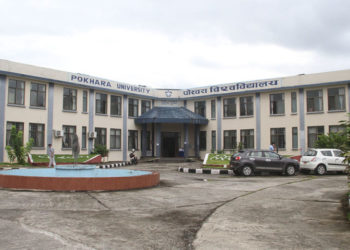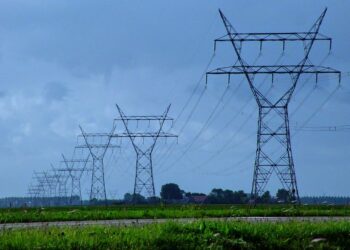Ambassador Farooq Sobhan is currently the Distinguished Fellow & Board Member of the Bangladesh Enterprise Institute.
He was Executive Chairman, Board of Investment and Special Envoy to the Prime Minister and Foreign Secretary.
He has also served as Ambassador/High Commissioner to India, China, Malaysia and the United Nations.
Ambassador Sobhan served as Chairman of the Group of 77 at the UN and was Chairman, UN Commission on TNCs.
He is a member of the Board of Governors of the South Asia Centre for Policy Studies, based in New Delhi, and was Co-Chairman of the Coalition for South Asian Cooperation.
He was a visiting professor at the Elliott School for International Affairs at George Washington University and Chairman of the Board of Trustees of the independent Centre for Corporate Social Responsibility.
He is currently a Member of the International Advisory Committee of the Asia Society in the US, the Round Table and Patron of the Ramphal Centre in London.
He chaired the Task Force established by the Asia Foundation in 2004 on “The US Role in South Asia”.
Dr. Pramod Jaiswal, Strategic Affairs Editor at Khabarhub, spoke to Ambassador Farooq Sobhan on the issues related to the Foreign Policy of Bangladesh.
How would you define Bangladesh’s foreign policy today? What are the major objectives and concerns of Bangladesh’s foreign policy?
Bangladesh’s foreign policy cornerstone was in fact laid by the Father of the Nation which was “Friendship with all and malice to none”.
As Bangladesh celebrates the Golden Jubilee of Independence, we are happy to note that we have enjoyed cordial relations with all the major powers, with our neighbors and our focus has been on economic development and economic growth.
We have been quite successful in recent years and also improving the social indicators in the country and we are today in the fortunate position of having the highest per capita income in the region. Certainly, higher than both India and Pakistan.
But we also have focused on trying our best to strengthen regional cooperation and maintain, as I said, friendly and cordial relations with all the key players in the region as well as globally.
We enjoy good relations with the major powers, the European Union, with ASEAN, with brothers in the Islamic world, the Gulf countries and we are also now actively engaged in developing our relations in Africa.
As you know, Bangladesh has been now for the last several decades one of the leading contributors of UN peacekeeping troops and as a result, many of these peacekeeping expeditions have been in African countries.
So, in a large number of them today Bangladesh is well known in Mali, in Sierra Leone, in Chad, in Mozambique, in South Sudan, and so on.
So, we are now trying to leverage the reputation of our peacekeepers in also developing our relations in Africa.
Is Bangladesh all set to be the next Asian tiger? What is the biggest threat to Bangladesh’s growth at the moment?
I think the biggest threat frankly is a threat that the entire global economy faces today, because of the COVID-19 pandemic.
As you know, the COVID-19 pandemic has affected global trade, global employment.
For Bangladesh, the two main sources of foreign exchange earnings have been through our exports, mainly our readymade garment exports to the US European Union and many other countries, and also through the remittance of our workers in the Middle East and ASEAN countries.
Also in Japan, in Korea. And the COVID-19 pandemic has obviously had an impact on exports.
Fortunately, there is a nominal impact on remittances, so that becomes a challenge.
We are now concentrating on how to come out of this pandemic. Life is rapidly returning to normal, the economy is picking up, exports are picking up.
We are of course also like other countries in the region focusing our attention heavily on attracting Foreign Direct Investment.
We are also keen to attract investment in the capital market in Bangladesh. Recently, the government did an investment roadshow in the US.
There was a large delegation that visited several major cities in the US. The Prime Minister has just hosted an event in New York focusing on the investment opportunities in Bangladesh.
Our advisor for the private sector and investment Mr. Salman Rahman is currently in Saudi Arabia with a large delegation, trying to interest Saudi companies to invest in Bangladesh.
So yes, I would say that attracting foreign investment is going to be an important challenge for the country in the post-pandemic world.
Bangladesh as you know, under the leadership of Sheikh Hasina, has set two important targets for itself.
By 2030, we hope to achieve the targets set under the Sustainable Development Goals and hope to be a middle-income country and by 2041 we hope to be a high-level middle-income country.
So, these are ambitious targets predicated on expanding our economy, expanding economic growth, expanding our exports and attracting large amounts of foreign investment into the country.
What can other South Asian countries like Nepal learn from the economic boom of Bangladesh?
Well, three or four things. One is of course education, I think it has been an important factor.
The government has paid a lot of interest to improving education both in the public sector as well as in the private sector.
Today, we have 105 private universities across Bangladesh. What is perhaps one of the most significant developments is the education of the girl child.
Female enrollment in schools today is higher than male enrollment, 53 percent is female enrollment as opposed to 47 percent for boys.
I think the second reason for the success story has been female employment and female empowerment.
Today we have over 4 million women working in the readymade garment sector.
But through various microcredit programs, we have another 16 million women who are self-employed and working in rural areas.
So, it is creating jobs, creating employment opportunities. A second key success story for Bangladesh, which perhaps Nepal can also benefit from, is the special attention we have focused on developing a digital economy.
Today, the entire country is accessible through the internet and cell phones. In a population of 170 million, we have 170 million cell phone subscribers.
Of course, not everyone is a cell phone subscriber, many people have two cell phone numbers.
But we now have crossed 100 million in terms of people who have access to the internet.
Our younger generation is making full use of the opportunities that a digital economy presents.
And we are giving special attention to promoting a digital economy. So today in all our banks you can do bank transfers digitally, we have various digital payment schemes.
There is bKash and many other schemes and showcash and so on. So, all your bills can be paid digitally, and it makes life for the common man that much easier.
During the COVID-19 pandemic, the government through various digital payment schemes was able to provide financial support to millions of people through its digital programs.
Also, we focused a lot on digital education. These are all areas where Bangladesh has achieved, I would say, substantial success.
I think the third lesson which can be of some benefit to Nepal is the focus on the growth and development of the energy sector.
When this government came into power twelve and a half years ago, the present government under Sheikh Hasina, our total energy generation was in the region of 5 to 6000 megawatts.
Today our generation capacity has crossed 20,000 megawatts. The entire country today has energy and electricity.
My institute conducted numerous surveys of the private sector to assess what was their principal complaint in terms of doing business in Bangladesh, both foreign investors as well as locals.
And the major complaint 15 years ago was the shortage of electricity. We had power cuts endemic and we faced a lot of problems in terms of access to uninterrupted power. Well, that problem has now been solved.
So, without energy and power, economic development and growth become extremely difficult.
What hope does Bangladesh have from SAARC? What roles can Bangladesh play in reviving SAARC?
Well, this has frankly been a big challenge for SAARC since its formation. I’d like to recall the first meeting of foreign secretaries took place in 1981.
In 1983 we had the first meetings of foreign ministers and then the first summit in Dhaka took place in December 1985. So SAARC is now soon going to be 36 years old.
Unfortunately, progress has been slow and largely due to problems in the bilateral relations between India and Pakistan.
I think the big challenge for us, the smaller member states, in terms of relationship to India in particular, is to keep our bilateral differences out of SAARC.
This was the lesson that the European Union learned. As we know, France and Germany fought many wars but they were the real anchor in getting the European Union moving.
Whilst bilateral differences between European Union countries remain this has not been allowed to interfere in the growth and development of the European Union.
Similarly, we have seen in the case of ASEAN too, they have not allowed the multiple bilateral differences in ASEAN to stand in the way of the development and growth of ASEAN.
And I think that is the most important lesson that we in SAARC need to learn. I think it is extremely important that we revive SAARC in terms of the three key areas; seamless trade, seamless connectivity and seamless investment.
I think that is the lesson we can learn from the experience of our neighbors next door in the ASEAN.
And I would like to see our leaders, particularly in the post-pandemic world to try and revive SAARC and invest it with the dynamism that was the expectation of the leadership in the past and most importantly of the people of the region.
So, I hope our leaders will rise to the occasion in the coming months.

Since both Nepal and Bangladesh are members of the WTO, BIMSTEC, and SAARC, how can the countries use such international and regional forums to enhance regional and bilateral trade for creating investment opportunities?
As I said, we need to revive SAARC. We need to also leverage the opportunities presented by BMISTEC and also by the WTO.
Within the WTO, things haven’t really moved forward for many years. Both Nepal and Bangladesh are still members of the LDC group.
Bangladesh will be graduating, we’ve met all the necessary criteria to move out of the LDC group.
But, as of now and for the next few years we will continue to be an LDC. We have an important LDC summit around the corner.
I think it is important that we try and see what is the best way under these different groupings to enhance our trade and connectivity, to enhance investment.
I think that remains a challenge; not simply for the government but for the private sectors in all our countries.
Because so much of trade and investment now rests in the hands of the private sector.
So, we need to create platforms for the private sector to interact. Government should simply play the role of facilitator, remove the barriers that currently exist and create opportunities.
So, we need to sit down. In 1997 at the SAARC Summit, the leaders agreed to commission a group of experts; to present an action plan for SAARC.
I think, roughly almost 25 years later, we need to do the same. Let us create a group of experts, let them give us an action plan on how South Asia can leapfrog ahead of other regions.
What is it that we need to do? How do we leverage the opportunities of; digital economy.
How do we create a seamless South Asia in terms of trade and investment? There could be many other ideas.
At the end of the day, we need to leave it to our leaders as well as what is happening in the domain of people-to-people contacts, to take this agenda further.
Bangladesh has borne the brunt of global climate change effects but has to address loss and damage mostly with its funds. Has the country been urging for any regional collaboration? How is Bangladesh preparing for speeding its efforts to fight Climate Change?
Well, our Prime Minister is currently a co-chair of the countries that are most vulnerable to Climate Change.
Bangladesh is endeavoring to play a leading role. We have several meetings in the ongoing United Nations General Assembly (session).
At the leadership level, the Prime Minister will be participating in some of these meetings.
Similarly, on the 1st and 2nd of November, we have the Global Summit at Glasgow.
So, we need to accelerate, intensify the ongoing efforts to control emissions and to take measures; to both mitigate the consequences of Climate Change and also take necessary measures in terms of adaptation.
I think one of the key challenges that the whole world is going to face is how do we manage with less water in terms of cultivation and subsistence. Because as the population increases, the demand for water increases.
Hence, what we find is that access to water becomes more difficult. We have this problem in South Asia, where we have too much water in the monsoon and then too little in the dry season.
So, what can we do in terms of water conservation? I think it is also important that there is a significant increase in terms of funding, for both mitigation and adaptation measures.
In the case of Bangladesh, we have developed the delta action plan; which focuses on a large number of measures relating to mitigation and adaptation. It does remain a big challenge for Bangladesh with global sea levels rising.
This could of course affect a number of countries including Bangladesh but also many of the Small Island Developing Countries.
So, I hope the international community will rise to the occasion, in terms of funding. I hope that technology will also play a major role in helping us develop schemes, programs that can help us address some of these issues.
I think it’s also very important that this should be seen as a problem for all countries; both developed and developing.
One of the problems which we have faced in the past has been the difficulty in arriving at an agreed action plan involving both developed and developing countries, in terms of financing, both adaptation and mitigation measures.
We hope that in Glasgow, we will be able to come up with an effective action plan.
Apart from the US and Europe and other major developed countries, we will also see China, India, Indonesia, Brazil, and other important developing countries play an active role in contributing to both adaptation and mitigation action plans that are under discussion.

How has the situation in Afghanistan impacted the security landscapes in South Asia? What is Bangladesh’s approach going to be in terms of the Afghans seeking refuge?
We have already made it known that currently, Bangladesh is hosting 1.2 million Rohingyas, forcibly expelled from Myanmar.
We are doing our best to try and persuade both Myanmar as well as the International Community to undertake measures for the return of the persecuted Rohingyas back to their own country.
So, under these circumstances, I don’t think it would be realistic to expect that Bangladesh could host Afghan Refugees.
This has to be a responsibility shared by other countries in the region and beyond.
But let me say a few words about what has happened in Afghanistan. Bangladesh as of today has taken a wait-and-see position, we have voiced some expectations that the Taliban this time around will be more inclusive in how they run Afghanistan, that they will eschew any form of collaboration with Al Qaeda or any other extremist group.
So, these are the expectations, we hope that girls will continue to be allowed to go to school, and women will be allowed to work.
That is our hope and expectation. Above all, we hope that we will see stability in the region. I think that is important.
Of course, the concern remains whether the advent of the Taliban will encourage extremist groups beyond Afghanistan.
Similarly, whether some of the challenges which we faced in the past will reoccur. Bangladesh did experience domestic acts of terrorism from some extremist groups but the government has been extremely successful in addressing these challenges.
We hope therefore that the return of the Taliban to power in Kabul will not encourage any of these extremist groups to resurface and engage in acts of terror.
How did Bangladesh perceive the recent warning of one of the Chinese envoys against joining QUAD Alliance claiming that the Sino-Bangla relation will have to bear ‘substantial damage’ if done so? What does this say about the nature of China’s diplomacy?
I would not like to comment on this, other than to say that Bangladesh is quite capable of knowing what is in the best interest of Bangladesh.
As I said in my opening remarks, we want to have cordial relations with all the major powers, with our neighbors.
We have been very careful in not getting involved in the differences between India and China, on the one hand, or between the US and China on the other. We do see that there may be some issues and problems in the future.
But I think it will be the aim and objective of Bangladesh to maintain cordial relations with all the major powers, with India, with China, the US, Japan, Russia, and other countries.
So, we would be very concerned about the possibility of return, of the old Cold War which characterized the geopolitics of South Asia in the 70s and the 80s., where you had Pakistan and China vs then the Soviet Union and India.
We hope that we can see a return to a more balanced and to some measure the peace and stability in the region, where the focus will be on economic growth and development, where the efforts to integrate into the Asia Pacific continue.
And it will be a hard effort in Bangladesh to continue to maintain cordial relations with all the countries in the region and beyond.









Comment